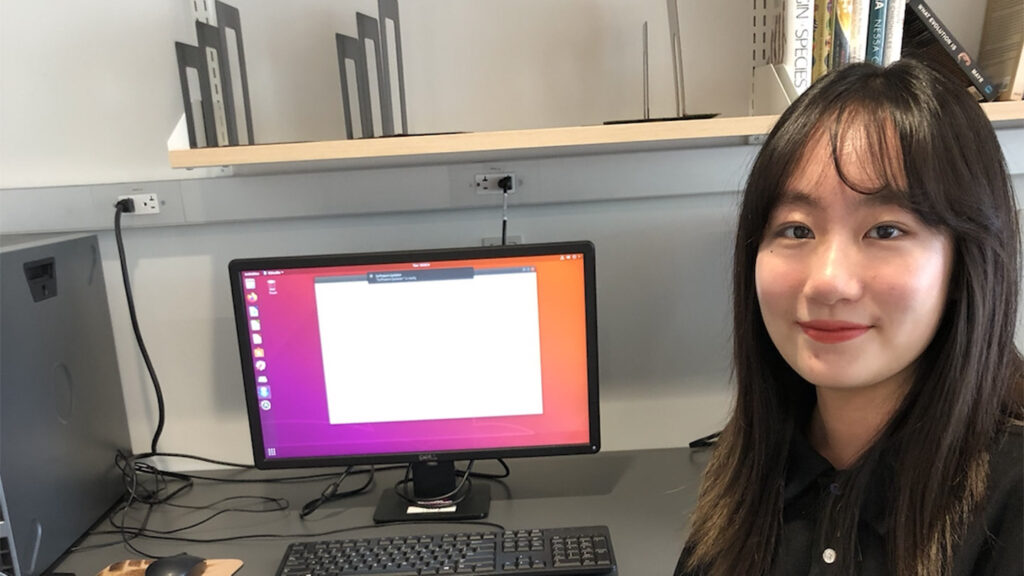By Stella Katsipoutis-Varkanis
The day Zhaoyi Ding ’21 arrived at Lafayette in 2018 marked the first day of her new life on American soil. Yet, as one of the few biology majors from China with a minor in mathematics, Ding has smashed through language and cultural barriers to attain her one goal: expand her knowledge with a diverse education and pursue a career as a biostatistician.

Zhaoyi Ding
“I’ve learned how to adapt to the new environment,” Ding says. “The biggest challenge for me is communicating effectively with my peers and the faculty. To overcome that challenge, I stay engaged with my peers and professors, and help build a collaborative atmosphere on campus.”
With the help of her adviser, Eric Ho, associate professor of biology, Ding has embarked on exciting research this year for her senior thesis project, which blends science (electrocardiographic [ECG] data), mathematics (nonlinear dynamics and multifractal detrended fluctuation analysis), and computer science (machine learning). And she does it all while maintaining an impressive 3.9 GPA—making her a double threat as an up-and-comer in the STEM field.
Ding’s project focuses on ECG data analysis as a preventive diagnostic method for stroke. “Stroke is the fifth leading cause of death in the United States and is a major cause of long-term disability for 3.1% of adults,” Ding explains. “Since cardiovascular disease is a major cause of stroke, heartbeat analysis becomes a promising path to studying this condition.”
Besides helping her expand her knowledge in STEM, the research opportunity, she adds, also allows her to exercise and flex her communication muscle in her new surroundings.
“I have never conducted research like this before attending Lafayette College, and it is extremely important and valuable to me,” Ding says. “It will help me a lot in my future studies and make me a more competitive candidate on the job market.”
Ding plans on pursuing a master’s degree in biostatistics after she graduates from Lafayette. “I love biology because it unravels the complexity of various diseases, the human body, life itself, and living things, and how they interact with each other and the environment,” she says. “Biostatisticians play a unique role in safeguarding public health and improving lives through quantitative research.”
Read about other STEM Stars.
